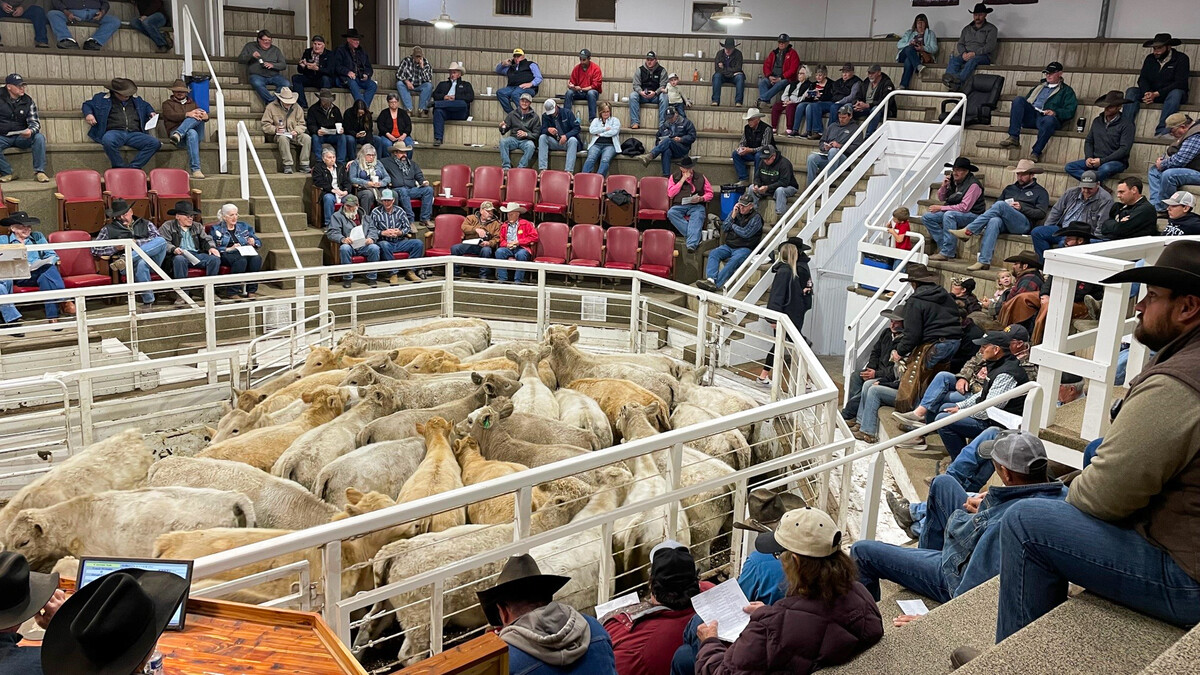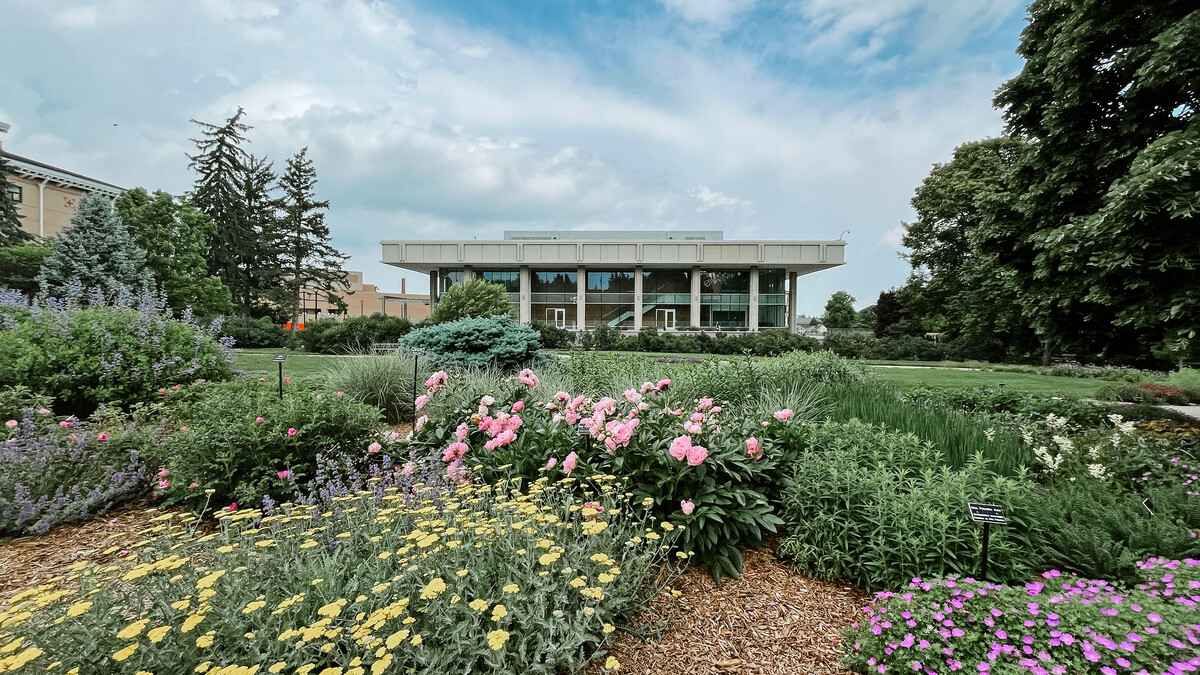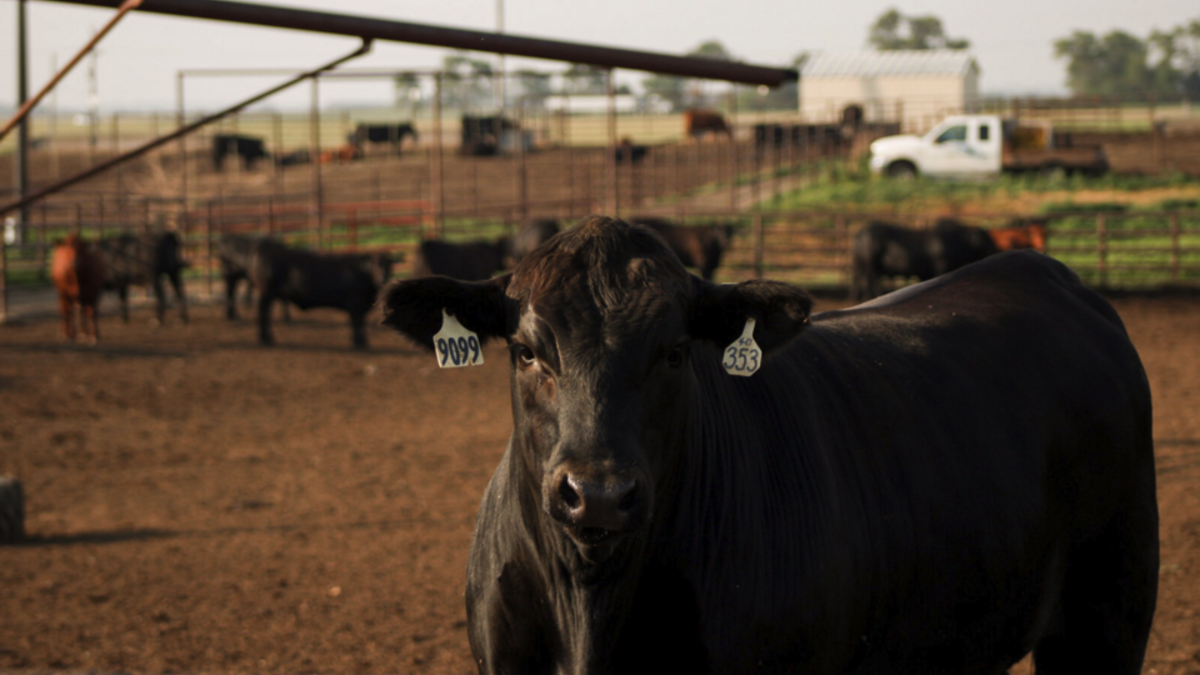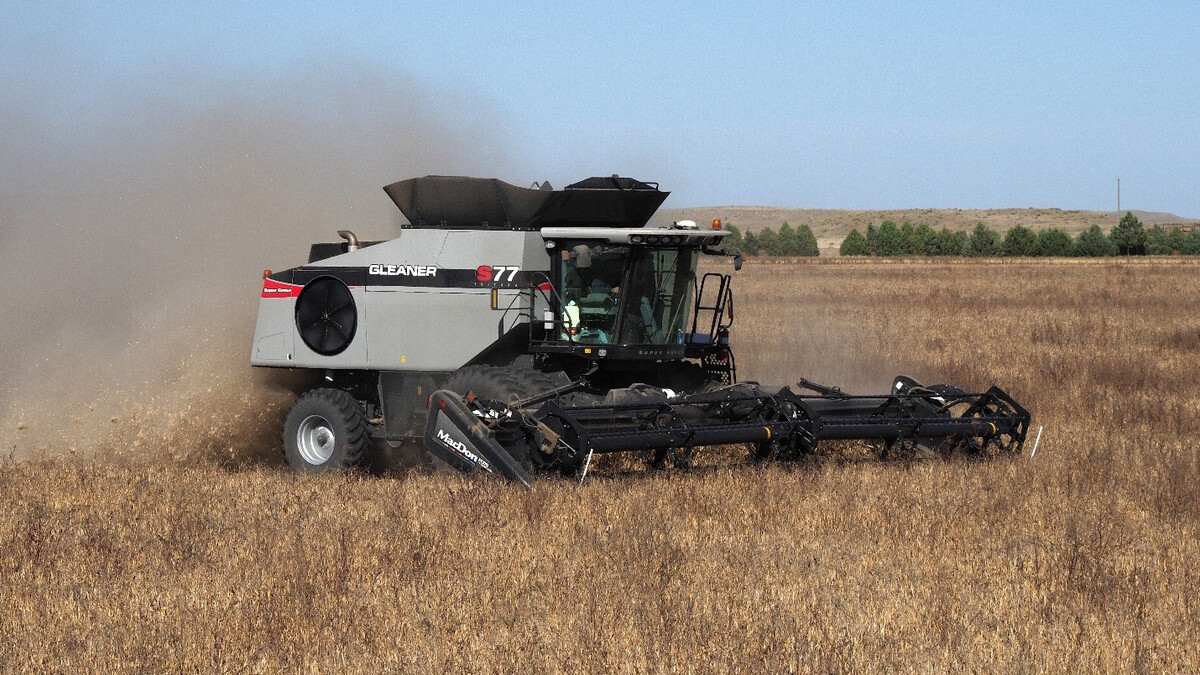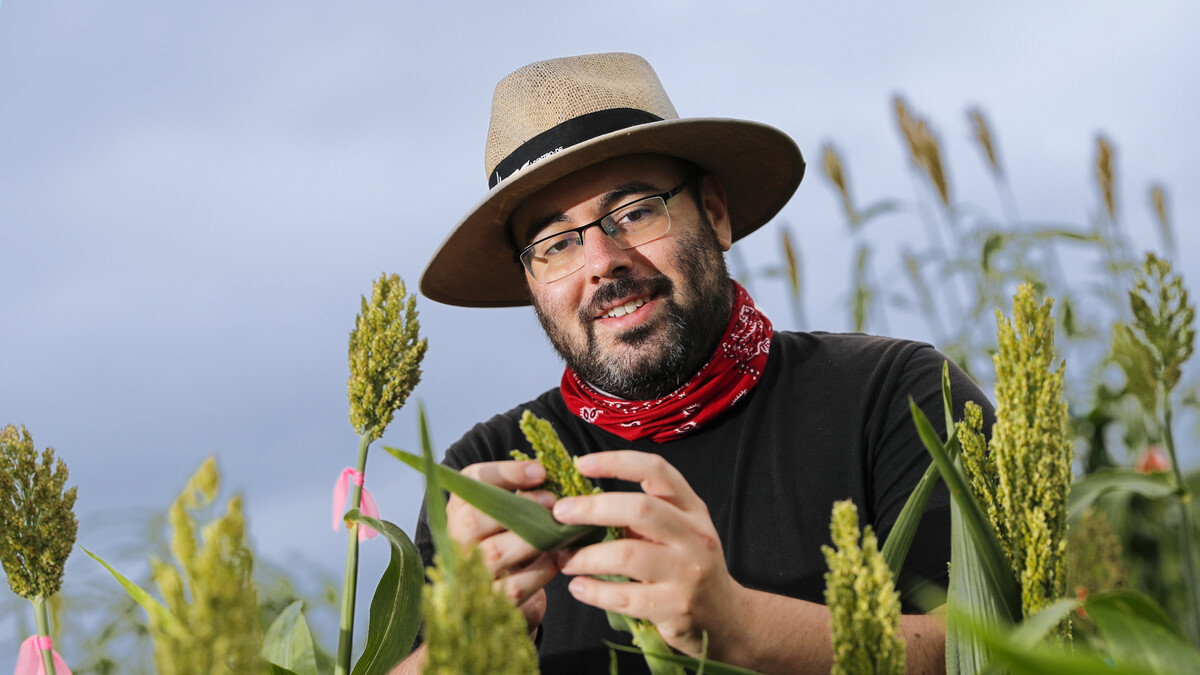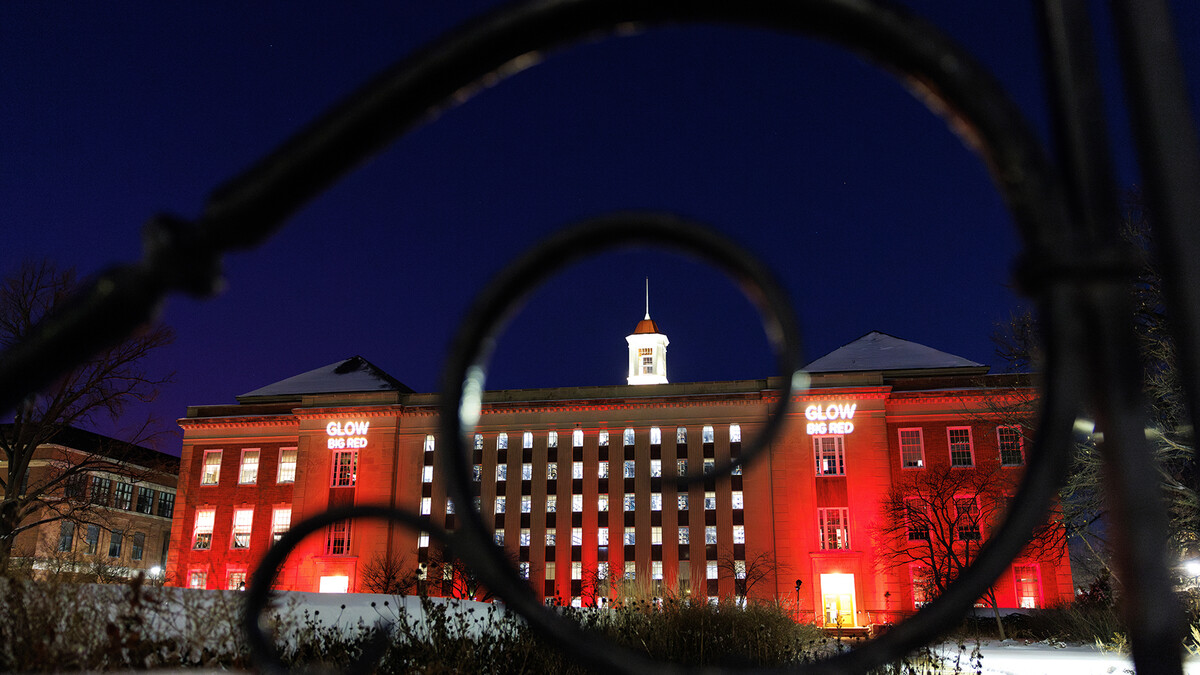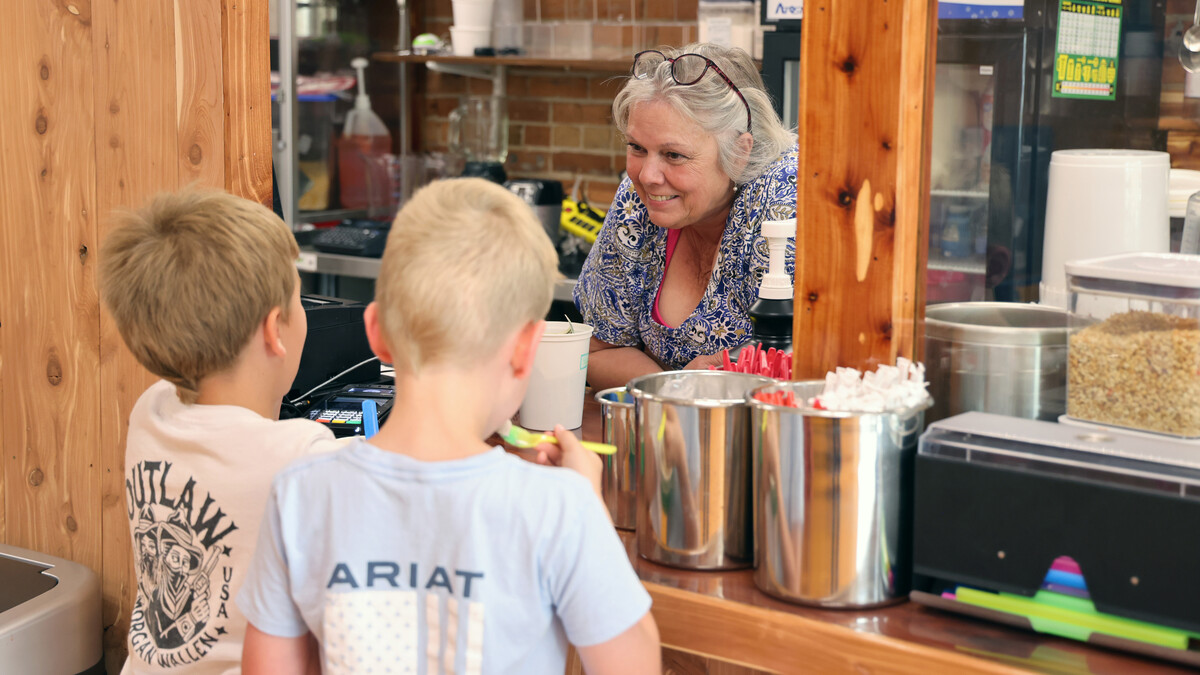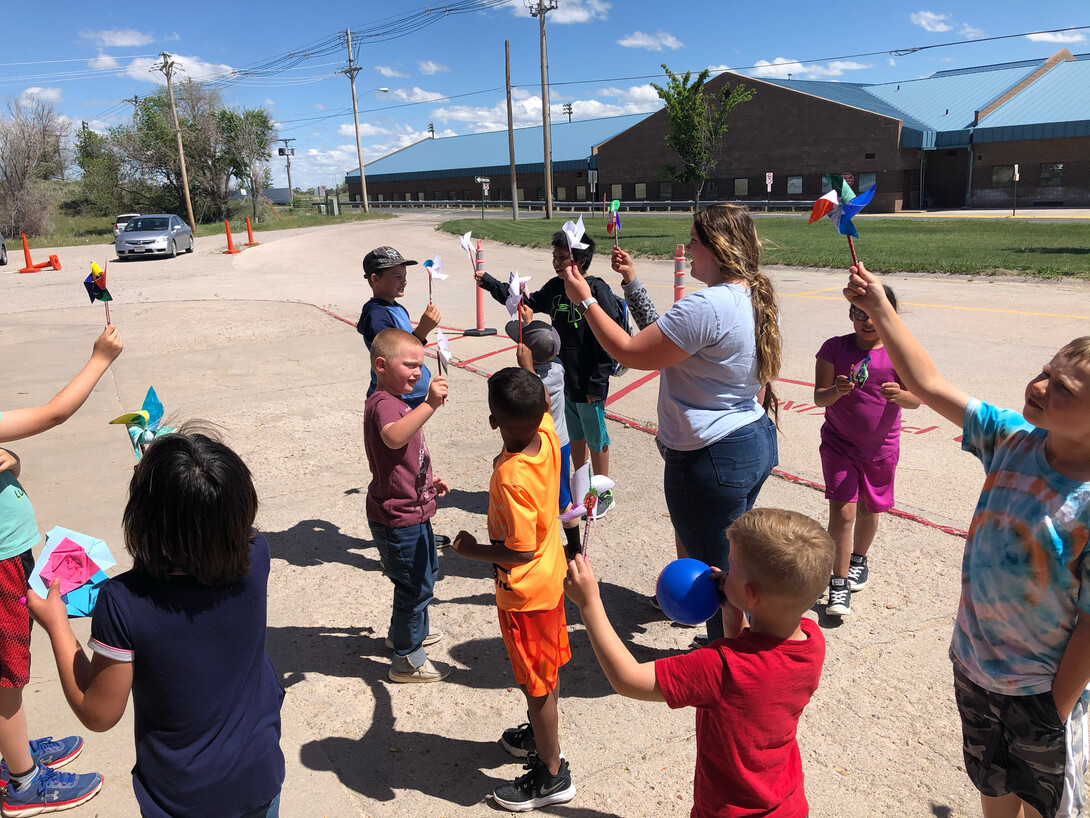
Lincoln, Neb. —Student interns who worked in Nebraska Extension offices throughout the state this summer have gotten a taste of careers in Extension by putting on experiential learning programs for local 4-H programs – planning and leading activities in which kids have fun while learning science, math, nutrition and healthy living.
Scotts Bluff, Morrill, Garden and Cheyenne counties in the Panhandle are four of the numerous offices in the state where interns are working. The interns help teach 4-H classes and organize county fairs, in addition to many other activities that are part of everyday business at a county-based extension office.
A key part of the experience is planning, executing, and evaluating educational programs that meet local community needs. In the process, they develop a variety of skills necessary for leadership in teaching, media presentations, recruitment, and personal interactions with diverse audiences.
This year’s interns in the Panhandle include Emma Schmidt in Scotts Bluff County, Amber Rosas in Morrill County, Tarah Ross in Garden County, and Jocelyn Pohl in Cheyenne County.
Nebraska Extension shares the costs of hiring interns with local offices, to help the students gain teaching experience, earn college credit, and work throughout the state, since Nebraska Extension has offices in almost every county in the state, including both urban and rural areas.
Internships are a valuable part of the educational experience for these young people, says Rob Eirich, coordinator for Nebraska Extension’s Engagement Zone that includes the Panhandle.
“Nebraska Extension wants to allow these interns to experience Extension programming in hopes of seeing Extension work as a rewarding career option for them in the future. These intern opportunities show how Extension reaches Nebraskans across the state through engagement at the local level.”
In Scotts Bluff County, Emma Schmidt, a UNL sophomore-to-be from Bridgman, Mich., interned under the mentorship of Jana Schwartz, 4-H assistant. Schwartz said Scotts Bluff County usually has one or two interns each year. Part of the work experience is having the opportunity to share what they are passionate about.
Schmidt is passionate about teaching and animals, especially llamas and dogs. So she conducted workshops and putting together some special dog classes. This helps her develop skills in writing lesson plans – setting goals and objectives of each workshop and translating those to activities, following the 4-H experiential model.
Schmidt, an animal-science major with a minor in the Engler Entrepreneurship program, said her lifetime goal is to open her own educational-based farm for kids to learn and have a chance to work with animals. Before this summer she had not been west of Lincoln, but says, “It’s beautiful out here and everybody’s really friendly.”
She especially enjoys working with Clover Kids (ages 5-7), and has led three workshops with that age group: one on mindfulness, edible crafts, and an animal-based workshop. She also has led a workshop on tin punching and its historical uses, and a tie dye workshop.
With the lack of llamas in western Nebraska, she has concentrated on a dog rally class. Rally is similar to obedience classes, but timed and more relaxed and fun class for kids to do to show bond with their dogs. Schmidt worked regularly with the Puppy Lovers 4-H club. Schwartz said the intern formed a close bond with the group, which was one of her goals.
Schmidt’s internship was arranged through the Husker After-School and Summer Learning Opportunities (HALO) program. A collaboration between the University Honors Program, Student Affairs, Nebraska Extension and Beyond School Bells, HALO is designed to give university students a chance to help youth whose learning has been interrupted by school closures due to the global pandemic. The program is made possible through CARES Act funds provided to the university.
The intern in the Oshkosh Extension office, Tarah Ross, graduated from Garden County High School this spring and will be attending the University of Nebraska at Kearney to major in elementary education, eventually possibly returning to the Panhandle to teach.
Ross led workshops with Extension 4-H Educator Sarah Paisley in the Oshkosh elementary school several days a week, including activities from the STEM CARES program, a collaboration of Nebraska 4-H Youth Development and Beyond School Bells funded by the CARES Act, provides programming in STEM (science, technology, engineering and math) to programs serving school-age children this summer.
The workshops featured activities such as sewing, baking, working with vinyl, tie-dying, and others. Participants make projects that they can show at their county fair. The STEM workshops also use subjects such as gardening and wind energy to teach the youth about scientific concepts.
“I think it's been a really eye-opening experience for me to work with kids throughout the summer. And I’ve really gotten what it feels like to actually lead the classroom because that's something I’ve never done before,” Ross said. “I'm feeling a little bit more ready to take on the whole teaching thing.”
In Morrill County, intern Amber Rosas, a graduate of Leyton High School, is in her final undergraduate year at UNL, working on bachelor’s degree in animal science and large-animal food production management. She’s considering a career in livestock nutrition or working at vet clinic as large animal assistant. Rosas received an associate degree of applied science and animal husbandry at Nebraska College of Technical Agriculture at Curtis, and associate degree in general science at Western Nebraska Community College.
Rosas led a variety of workshops, including teaching about animals and large machinery at AgSplosion, an agricultural literacy festival for second- and third-grade youth that, in four days this May, reached 602 students from 15 area communities. The youth rotated through hands-on activities related to corn, soybeans, pigs, dry edible beans, wheat, beef cattle, irrigation, dairy, ag careers, and ag technology. She also helped with workshops on painting, photography, tie-dying, vinyl working, baking, and other summer camps and workshops.
“It’s been good,” she said. “I've never really worked with children that much. I've always been in different fields of work so it's been good.”
In the Cheyenne County office, Jocelyn Pohl of Bridgeport is in her second summer as an intern, working under the supervision of 4-H Youth Development Educator Laura Narjes. Pohl is pursuing a degree in agricultural education at UNL with a goal of becoming a high-school ag ed teacher and FFA adviser.
Pohl has been leading day-camp activities in the Cool Kids program at Sidney Public Schools, which combines reading, math and science with fun activities. The projects the kids complete can then be entered in county fair.
One of the key activities was a photography program, in which she takes third-and fourth-graders on a photo expedition to the park. They shoot a variety of photos that fit in the different 4-H categories for the fair, then mount them to enter. Other workshops focused on sewing pillows, nutrition and health, and other 4-H projects that allow the youth to experience 4-H and encourage them to stay involved.
“I definitely think the lesson planning helps prepare me for my career,” Pohl said. The internship has given her a chance to apply what she has learned about planning in her education classes this past year. And just being in a classroom and working with students provides an education in behavior management, classroom management and seeing how kids work. Last year, the pandemic prevented her from working in the office before mid-June and eliminated most of the in-person interaction with kids.
Interns aren’t the only ones benefitting from their summer experiences. They also help the county-based extension offices offer more programming to children, the 4-H youth development educators say.
Narjes said, “Having an intern allows me to offer multiple programs. Several times we had several programs going on at one time, which wouldn’t have been possible. We have a much larger impact and it’s higher quality. We’re able to devote more time while we’re there.”
Schwartz said her summer workload tends to consist of more administrative than during the school year, making sure 4-Hers are entering things that they need to for fair.
“There’s less time to do workshops and make connections with 4-H members and that’s where Emma has done a fantastic job – finding what they want to teach about and sharing that. So we can offer a much wider variety of workshops in summer. They also help get ready for fair and make sure it comes off well.”
